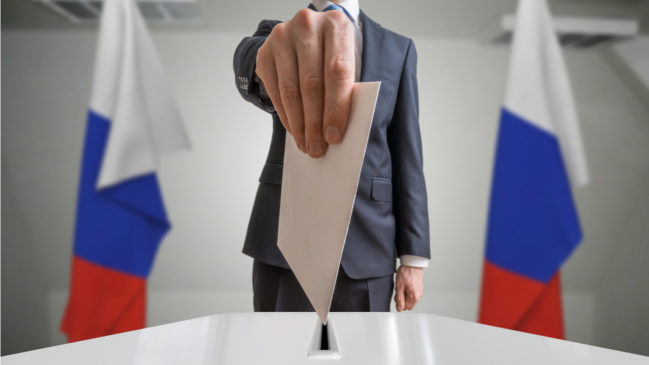The Russian parliament has adopted a new law obliging persons running for office to present information about their digital asset holdings. The legislation will amend a number of acts and apply to presidential and parliamentary candidates as well as government officials.
Russian Politicians to Declare Their Cryptocurrency Funds Before Elections
Members of the State Duma, the lower house of Russian parliament, have approved a law under which participants in elections will have to declare their crypto. It requires running candidates to share data about their spending on the acquisition of digital financial assets and digital currency, the Moskovsky Komsomolets daily reported on Wednesday.
The new legislation will introduce various changes including to the laws on the election of the President of the Russian Federation, the deputies in the Duma, the members of the Federation Council, the upper house of parliament, as well as those governing the formation of political parties and the efforts to combat corruption.
The obligation to disclose the financial information will apply not only to the candidates but also their spouses and children. They all must declare each transaction related to the purchase of cryptocurrencies over the past three years, if the amount exceeds the total income of the family from the three-year period prior to the acquisition. They are also expected to indicate the sources of the funds used for such transactions.
The new legislation will enter into force ten days after its publication, the report notes. Its adoption comes after lawmakers passed another law in February, allowing the Russian state to seek the seizure of illegally obtained funds from officials, including digital assets.
The legislative amendments follow last year’s order by President Vladimir Putin to check officials with crypto holdings. Several ministries and the Central Bank of Russia (CBR) were tasked to verify the information provided by government employees on their income declarations.
The federal government in Moscow has been implementing a new plan to combat corruption among officials. In 2020, the Russian president signed an order compelling government employees and candidates for public office to declare the crypto assets in their possession.
Amid mounting financial sanctions over the war in Ukraine, Russia has been taking steps to regulate its crypto space. While the CBR proposed a blanket crypto ban in January, the conflict has changed the situation and recent statements in the Duma have revealed Russia’s interest in using cryptocurrencies to restore its access to the global financial market.
In February, the Ministry of Finance submitted a new draft law “On Digital Currency” which aims to legalize crypto operations in the country instead of imposing severe restrictions. Most other Russian institutions and regulators, including the federal government, now back the department’s approach which favors regulation under strict oversight.
Do you expect many political candidates in Russia to disclose cryptocurrency holdings? Tell us in the comments section below.
Image Credits: Shutterstock, Pixabay, Wiki Commons
Disclaimer: This article is for informational purposes only. It is not a direct offer or solicitation of an offer to buy or sell, or a recommendation or endorsement of any products, services, or companies. Bitcoin.com does not provide investment, tax, legal, or accounting advice. Neither the company nor the author is responsible, directly or indirectly, for any damage or loss caused or alleged to be caused by or in connection with the use of or reliance on any content, goods or services mentioned in this article.



